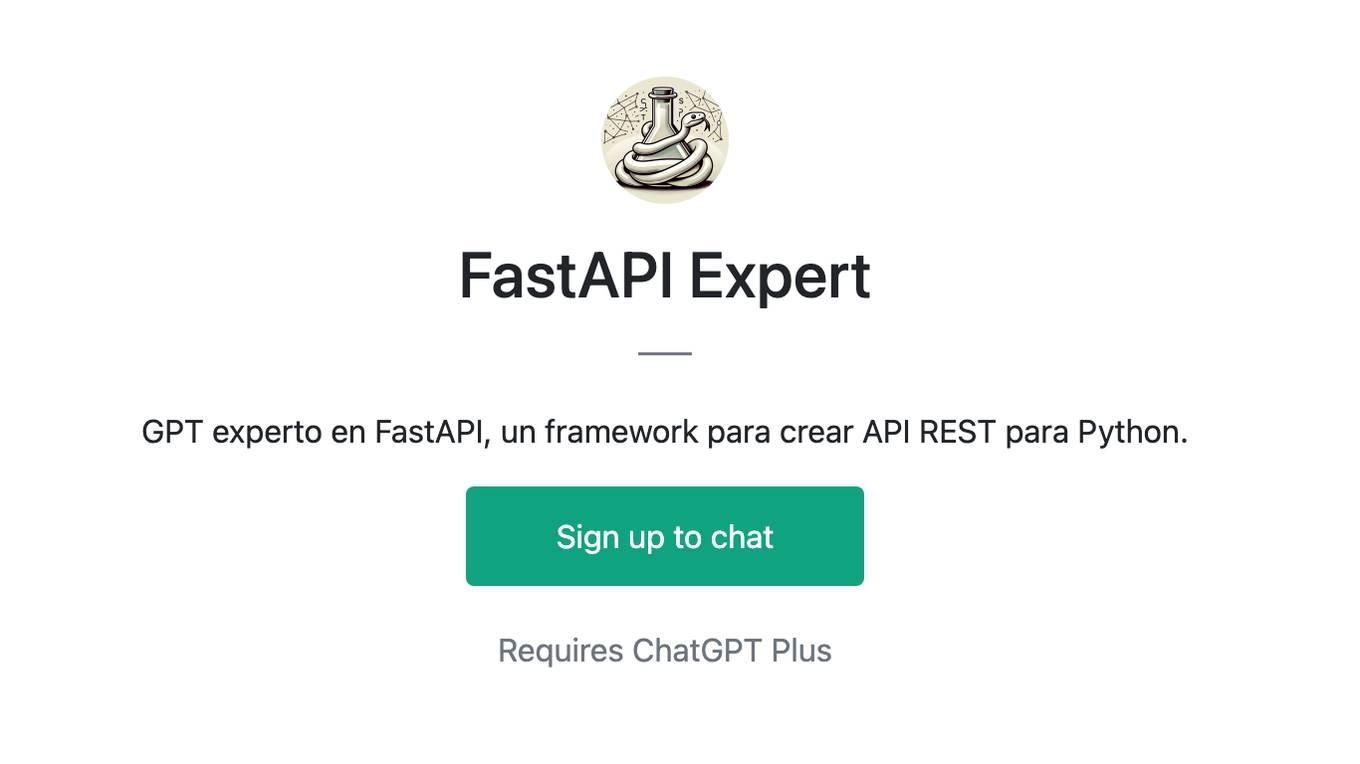Best AI tools for< Fastapi Developer >
Infographic
4 - AI tool Sites
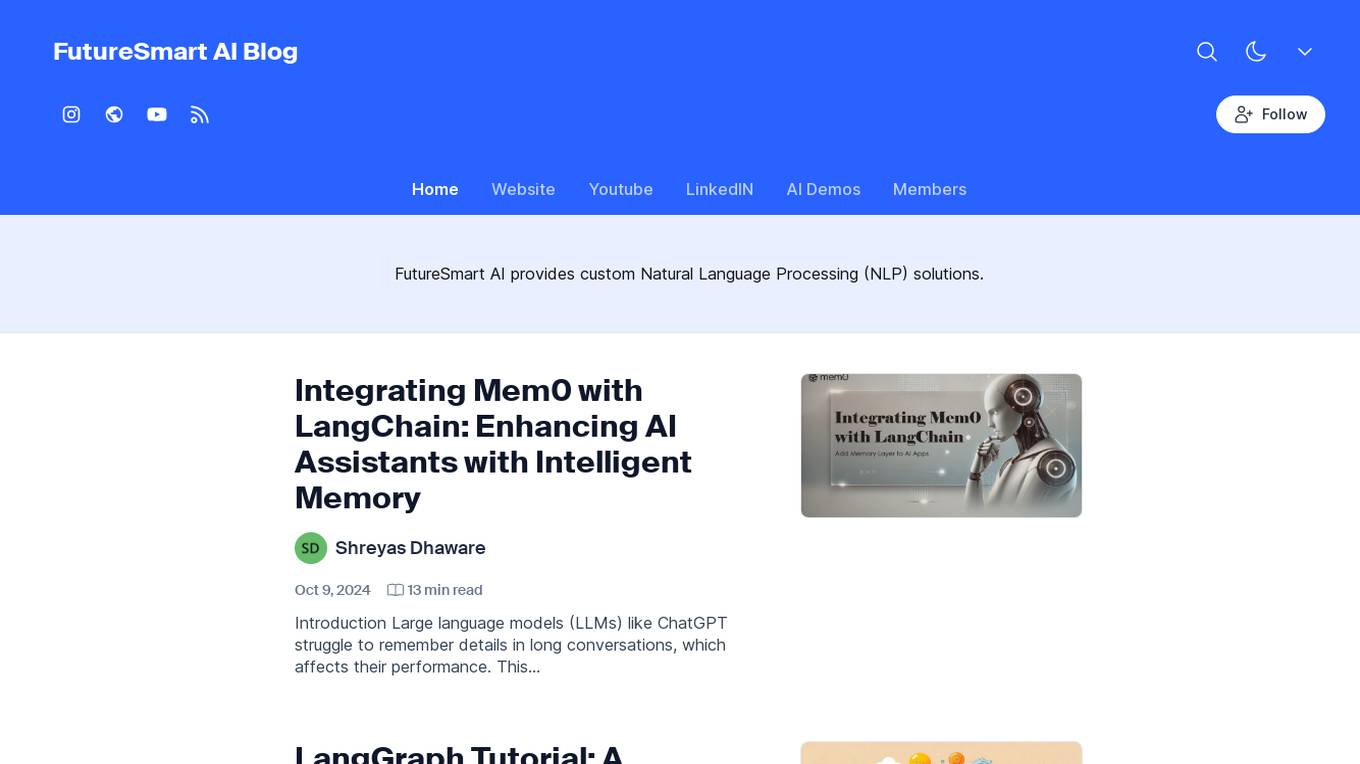
FutureSmart AI
FutureSmart AI is a platform that provides custom Natural Language Processing (NLP) solutions. The platform focuses on integrating Mem0 with LangChain to enhance AI Assistants with Intelligent Memory. It offers tutorials, guides, and practical tips for building applications with large language models (LLMs) to create sophisticated and interactive systems. FutureSmart AI also features internship journeys and practical guides for mastering RAG with LangChain, catering to developers and enthusiasts in the realm of NLP and AI.
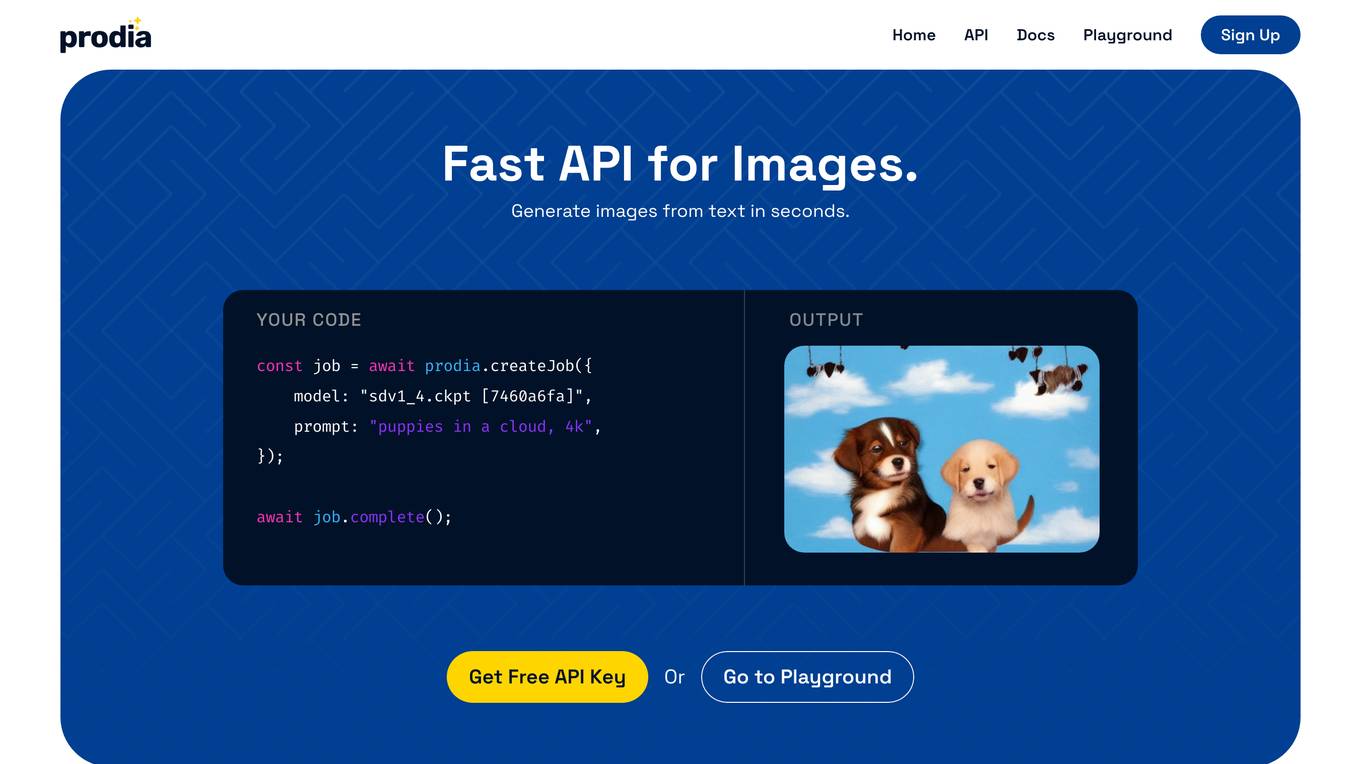
Prodia
Prodia is an API for generating images from text. It is fast, affordable, and scalable. With Prodia, you can create stunning visuals for your projects in seconds. Prodia is perfect for developers, designers, and anyone else who wants to add AI-powered image generation to their applications.
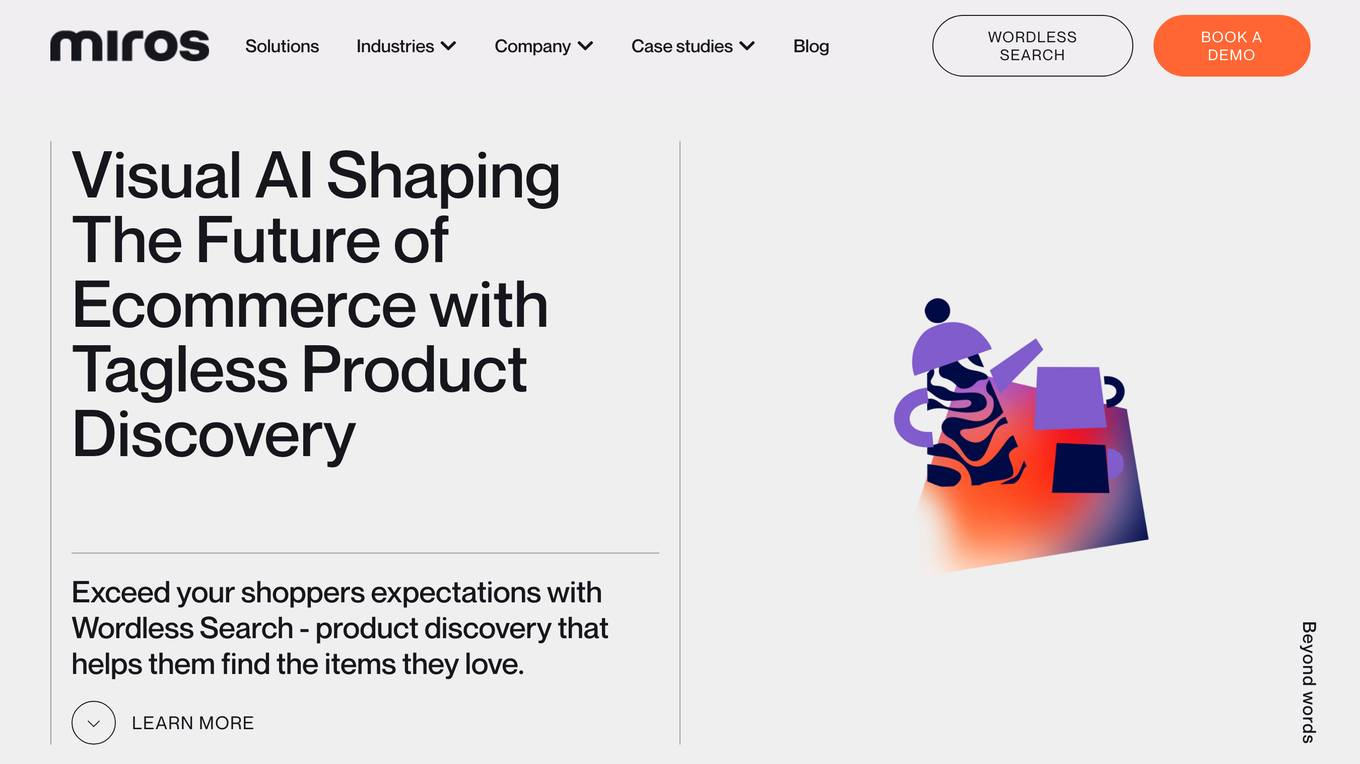
Miros
Miros is an AI-powered ecommerce search tool that provides shoppers with a seamless and efficient search experience. It utilizes visual and semantic AI algorithms to understand shopper preferences and behavior, delivering relevant search results without the need for text entry. Miros offers innovative solutions such as Wordless Search, Tagless Discovery, and Discovery Bar to enhance product discovery and improve the overall customer experience. With fast API response speeds and easy integration options, Miros is a versatile tool trusted by top retailers worldwide to drive growth through AI-powered product discovery.
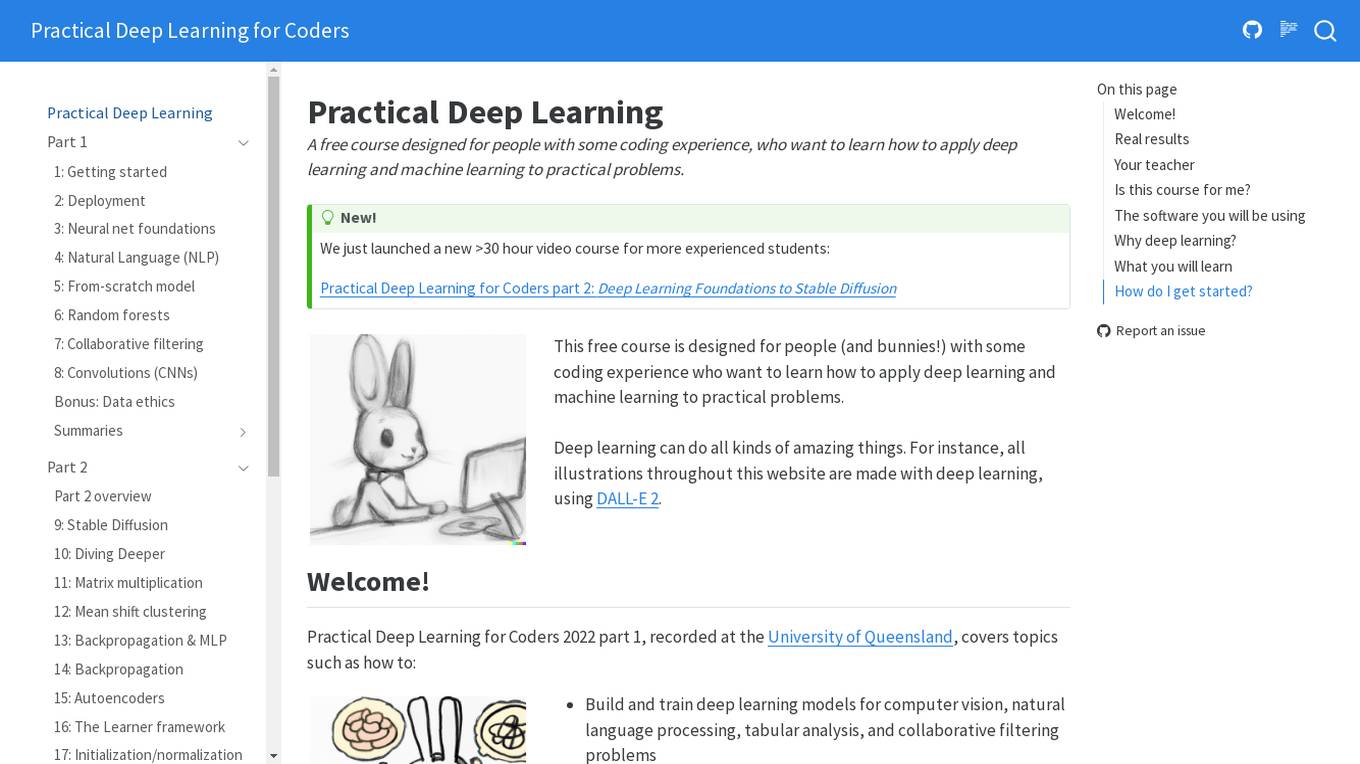
Practical Deep Learning for Coders
Practical Deep Learning for Coders is a free course designed for individuals with some coding experience who want to learn how to apply deep learning and machine learning to practical problems. The course covers topics such as building and training deep learning models for computer vision, natural language processing, tabular analysis, and collaborative filtering problems. It is based on a 5-star rated book and does not require any special hardware or software. The course is led by Jeremy Howard, a renowned expert in machine learning and the President and Chief Scientist of Kaggle.
0 - Open Source Tools
4 - OpenAI Gpts
![[latest] FastAPI GPT Screenshot](/screenshots_gpts/g-BhYCAfVXk.jpg)
[latest] FastAPI GPT
Up-to-date FastAPI coding assistant with knowledge of the latest version. Part of the [latest] GPTs family.
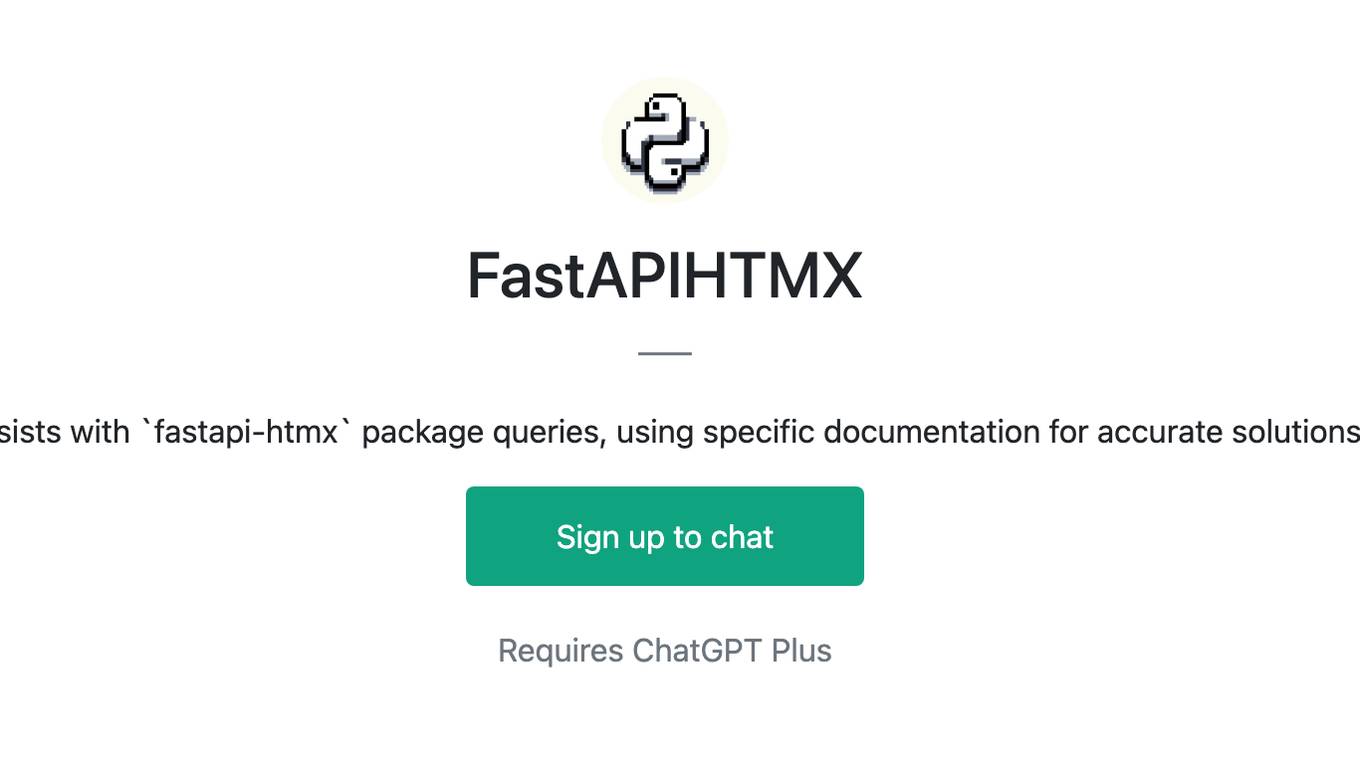
FastAPIHTMX
Assists with `fastapi-htmx` package queries, using specific documentation for accurate solutions.
